Welcome to our Blog. |
|
We're excited to announce that we will soon be offering online/telehealth ACT Social Skills Groups with @Jenna Rabe-Hoy (BCBA) and @Anthony Miller (BT)!
Check out our flyer + answers to your questions below: Who can join? What are the prerequisites? We will have weekly sessions for the following groups - 5th to 8th graders and 9th to 12th graders (some young adults may also be a good fit for this group.) To join, the learner must: - have some form of communication, either spoken or the ability to type into the chat - have strong receptive language skills - benefit from lessons/work surrounding relationships, goal-setting, and independent living What time are the groups? The groups will be on weekday evenings, likely starting at 3:30 or 4pm on Zoom. We will determine which days of the week for each age group based on survey response. What does the group cost/how do I pay? Most clients already working with us will be able to easily add the group code 97154 to their services via insurance. If you do not work with us already, we can look into utilizing your insurance coverage to pay group participation or we can discuss private pay fees. How do we get started? Please respond to this Google Form with some general information and we will be in touch ASAP. If you have specific questions, you can contact the BCBA who will be leading the groups, @Jenna Rabe-Hoy . Thanks!
0 Comments
We are excited to offer another mealtime webinar/chat with Dr. Yev Veverka on Tuesday, September 27th @ 4pm PST on Zoom.
Dr. Veverka will chat with parents and caregivers of individuals of all ages on the following topics: - picky eating - trying new foods - functional communication at mealtime - decreasing mealtime battles - decreasing stress around mealtime Following her presentation, Dr. Veverka will be available to answer your specific questions. This event is public and free. You're welcome to share the Facebook event link and invite others: https://fb.me/e/1GnW3wuKn We had our first Special Interest Group at the office last week and it was awesome! We now have the following groups up on the schedule on our website: AAC Users Meet Up, No-Bake Goodies, Dungeons and Dragons, Table-Top Gaming, and 2 different Art Groups! In the near future, we'll be adding: toddler time, LEGO/building, comic book creation, study skills, job skills, origami, and more!
To check out our schedule and sign up for a group, please go to http://www.prismbehavioralconsulting.com/special-interest-groups.html Also, please invite your friends! We want this space to be welcoming and open to clients and non-clients alike, regardless of neurotype. This is supposed to be a space for all types of individuals to come socialize and participate in something they're interested in if/when/how they want to. Additionally, we are offering these groups on a pay-what-you-can model to hopefully make them more accessible (some groups are free as well!) Our office is small, but our goal is for it to be cozy, welcoming, and safe! :) Let us know if you have any questions! Join us on August 25th @ 4pm to chat about toileting strategies for individuals of all support levels! Jessica Flaherty (she/they), a BCBA and doctoral student at UW, will present information on toileting support strategies that prioritize helping each learner feel successful and independent. They will also make time for individual questions and troubleshooting with attendees. We hope to see you there!
This event is free to everyone. You can join us directly via this Zoom link on the day and time listed above: https://us02web.zoom.us/my/prismbc You can also see the FB event here: https://fb.me/e/4vFys870H Please let me know if you have any questions! Good evening!
Prism has a new office in Queen Anne! Starting sometime in August, we'd like to begin offering special interest groups to both our clients and the community. While we're still figuring out the details, we do know that we want these groups to allow children to interact with their peers on their own terms and to bond over a shared interest. We're working hard to ensure our office is a safe, welcoming space for everyone who visits it. Because of this, we'd love your feedback on the types of special interest groups you/your child might be interested in: please help us out by completing this survey. Feel free to pass it along to others you know, as we won't be limiting our groups to just clients. With great appreciation, Francesca Crispo The amazing Chelsea Elliott from Close Enough Creative made these designs for us! We'll have stickers available for everyone soon!
We finally got a Caregiver Connection meeting on the calendar for 6/24 @ 1pm on Zoom. We will schedule future meetings on different days and times so everyone has a chance to join if they'd like. The topic for this first meeting's guided discussion is TBD, but if you have one in mind, feel free to email Francesca @ [email protected] . Thank you!
Here's the link to the FB event. Here is the Zoom link for the meeting. Please feel free to share and invite any other caregivers you may know! This is open to everyone and we want to offer resources to everyone in the community, not just our clients. Hello families,
We'd like to offer you all a way to connect with each other to talk, share ideas, vent, listen, support, and network. I'm still figuring out the exact structure, timing, and frequency of these caregiver groups, so if you're interested in joining us, please complete the following survey: https://forms.gle/iuYFiNFwevvLE1K49 With appreciation, Francesca There’s been a pretty big movement recently of adults, specifically women, seeking out diagnoses for autism. If you’re in the mental health field (or honestly even just on the internet) you might have noticed this along with a push for mental health support to be more widely discussed and accepted. It’s awesome! When I first saw talk about adults being diagnosed, I cheered from the sidelines! While many Autistic people receive their diagnosis as children, there are plenty of people who don’t; they don’t have access to diagnostic services, it’s not financially feasible for them, there’s a stigma around it that makes it an undesirable pursuit or, if you’re my age or older, there’s a good chance that people just didn’t know enough about autism when you were a kid! (And gosh, we still don’t know enough.) I think the latter applies to me, especially as a woman.
We now know that autism looks different in women and that many Autistic women spend their lives learning to mask their Autistic traits, so much so that, by the time they hit adulthood, they may not even “seem” Autistic. I’m lucky enough to spend a lot of my time with some really cool neurodiverse folks and feel like I know a bit about the traits typically associated with autism, yet when I mentioned own suspicions that I may be on the spectrum to some providers, they brushed me off within 5 minutes of meeting me because I was able to force myself into prolonged eye-contact and I’ve got some decent conversation skills. I think this is just a reminder that many people only associate autism with “deficits” and/or quirks they’ve seen on TV, completely ignoring the fact that autism IS a spectrum and it looks different for everyone. That might be a blogpost for another day… It wasn’t until my own personal priorities changed that I revisited this curiosity. Now, at 30, as an adult, parent, wife, business owner, college graduate, I’m still learning a lot about the way that my brain works and how that ties into my identity. Not only that, but I finally have the time to learn about myself in that way. Part of that has involved attending therapy on a regular basis, receiving an official diagnosis for anxiety as an adult (something I’d already known about myself). I’ve spent a lot of time learning how childhood trauma has shaped me as an adult, what my own gender identity looks like, what style of parenting resonates with me… one thing that was left unanswered until pursuing an autism diagnosis was “why does my brain work the way it does?” By that I mean:
Maybe you have the same questions about yourself and don’t feel the need to explore them with a psychologist - that’s okay! I know that self-identifying as Autistic is also the right thing for some folks. I don’t need to list all of the traits that made me pursue a diagnosis, but I will say that it was a combination of challenges (like difficulty maintaining friendships and regulating my own emotions) as well as strengths (like empathy, creativity, and the ability to immerse myself in projects 100%). The bottom line is that I recently received an official autism (and ADHD) diagnosis and while I can’t turn back time and ask my parents (or peers or teachers) to realize I was Autistic as a kid, to understand me better and potentially limit some of the trauma I experienced due to misunderstanding/lack of support, it has already helped me understand myself better. That’s worth a lot to me. Why am I sharing what seems like such a personal, private experience? If our goal is to accept and celebrate neurodiversity, we have to be willing to talk about it. Just like the mental health movement’s goal of banishing the stigma around mental health challenges and seeking support for them (whatever that looks like for you), acceptance and understanding begins when we stop hiding these parts of us. Brains work differently and that’s really cool! The world has made a lot of progress when it comes to diversity, inclusion, disabilities, mental health… but there’s still a long, long way to go. If you’re a parent reading this, maybe my experience means that your own search for a diagnosis for your child, as scary or overwhelming as it might seem at times, can help them gain a deeper understanding of themselves! As long as you seek out providers and diagnosticians that are compassionate, respectful, and knowledgeable, they can make the process safe for you and your family. When it comes to ABA, take the time to learn about the providers you are considering; we are all different, with varied approaches. Would I have benefited from ABA as a child? Honestly, probably not. You’ve likely read the reports of Autistic adults and the ways that ABA wronged or traumatized them as children. Things are changing, though. Providers now consider trauma, assent, autonomy, and the awesomeness of how our brains all work differently. We know better, we do better. We’re pushing for diversity, inclusion, trauma-informed care, autism and mental health understanding and acceptance. Similarly, if you’re a parent pursuing or wondering about a diagnosis for yourself, I hope that you’re able to learn more about yourself through that process. In my own journey, I’ve wondered if my child will have challenges and superpowers similar to mine. Maybe this process has better equipped me to support her regardless. Maybe your own journey into self-discovery will help you as a parent as well! With that said, I can only speak for myself; what I’ve written here is my experience with self-exploration and diagnoses as myself, and not any other Austistic folks or folks with ADHD or anxiety. Every Autistic person’s experience is different. If you’re curious about how it fits into the lives of other people, do some digging; there are plenty of online forums where Autistic folks share their stories! With Halloween right around the corner, here are some tips for keeping your evening fun and low-stress!
Happy Halloween! |

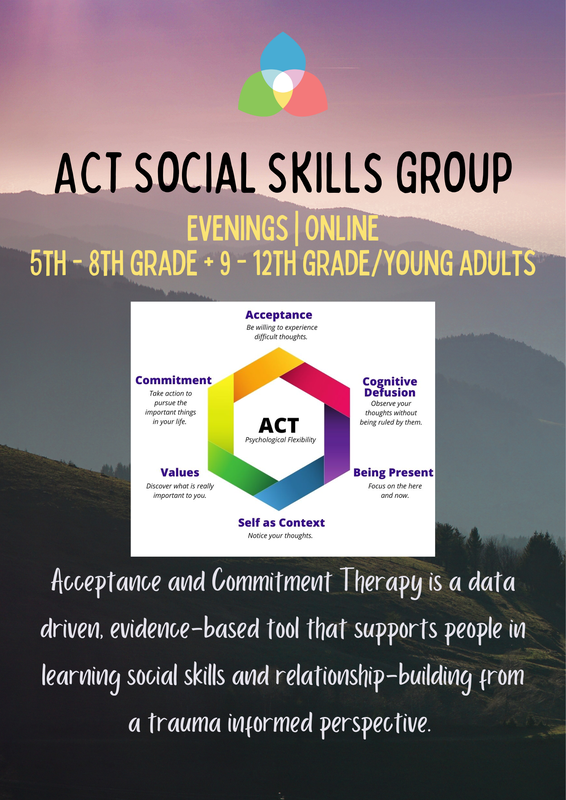

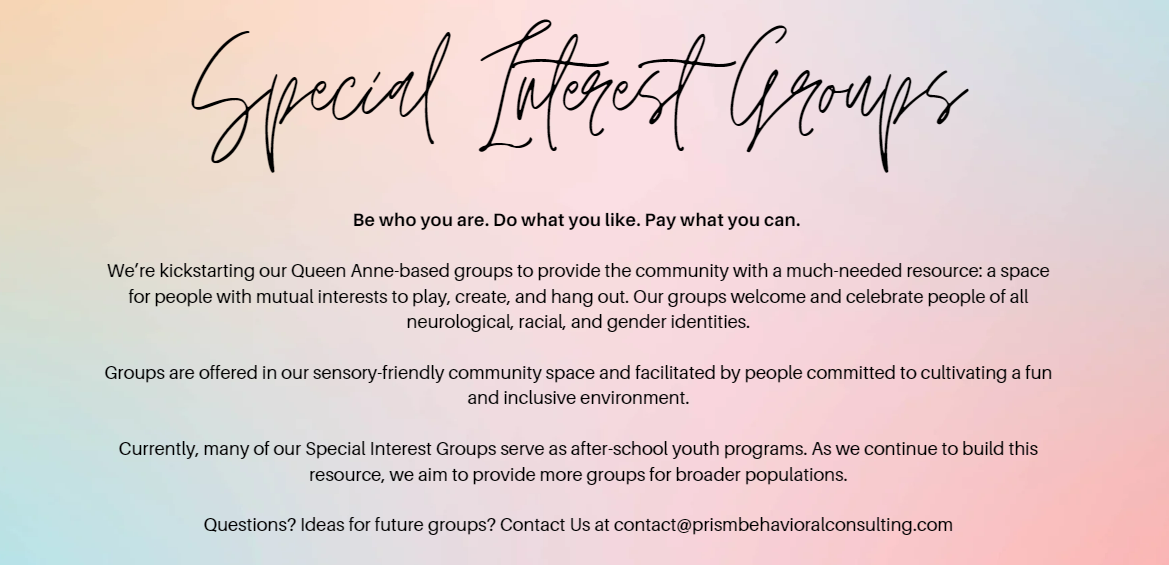
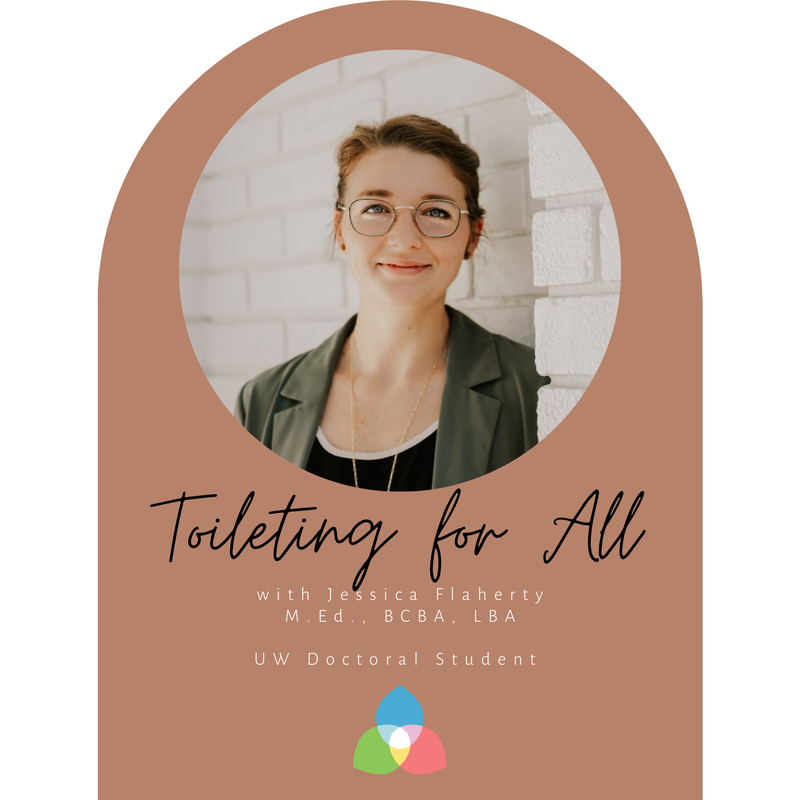
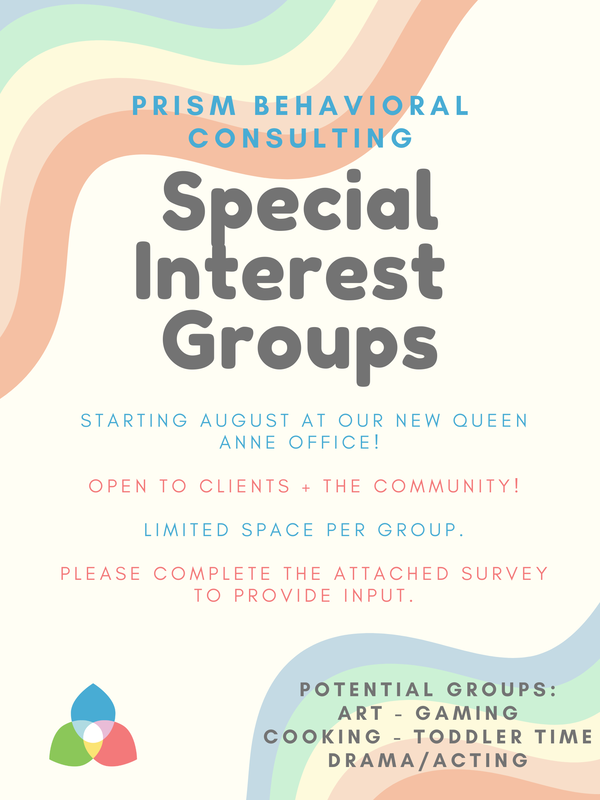





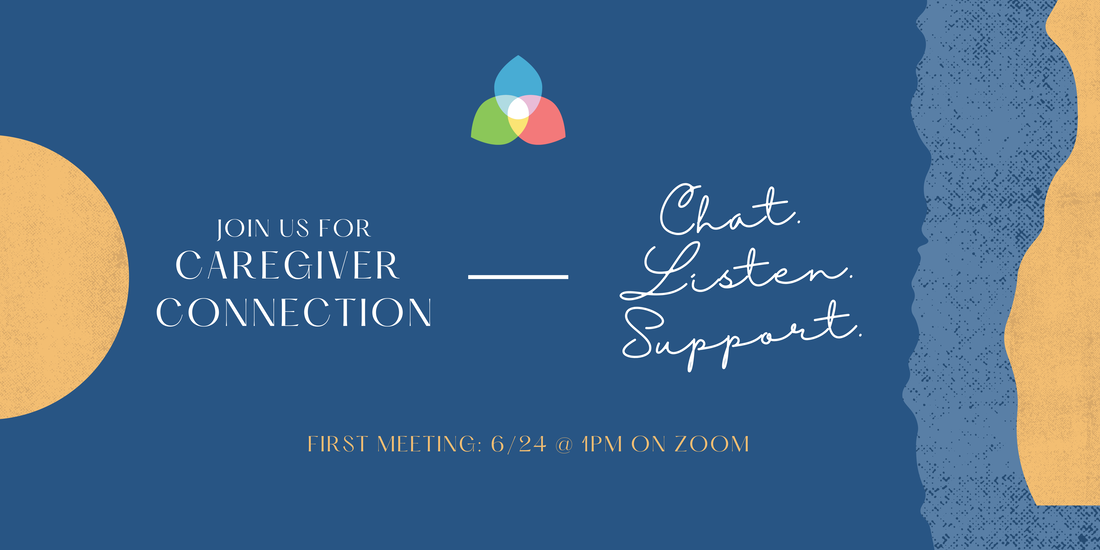
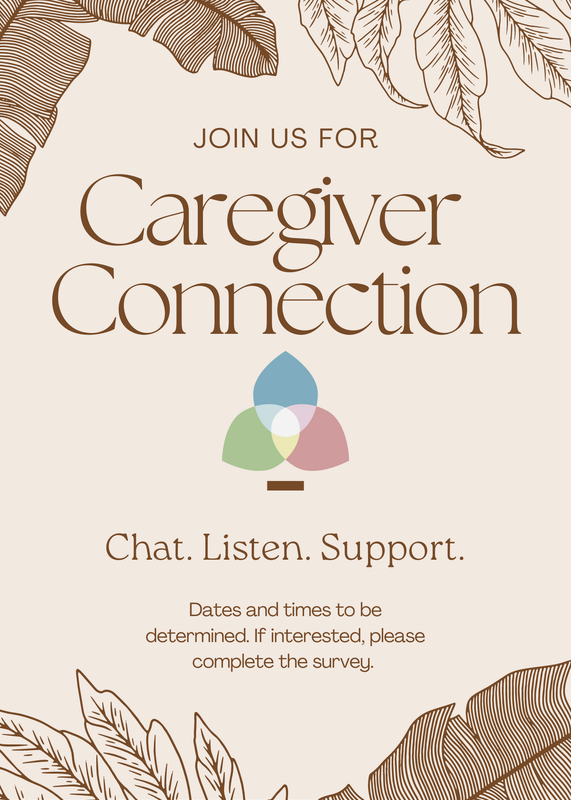
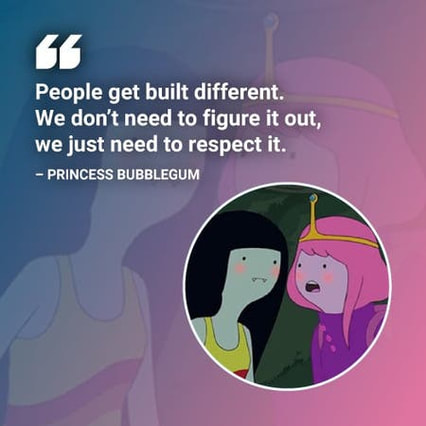
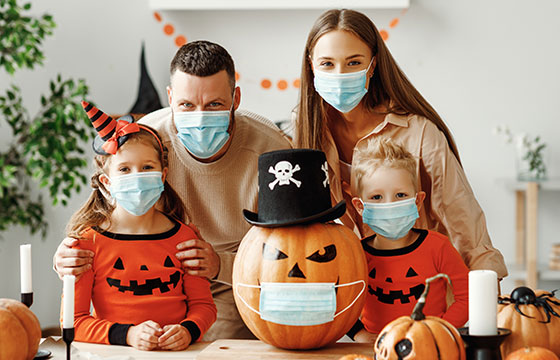
 RSS Feed
RSS Feed

